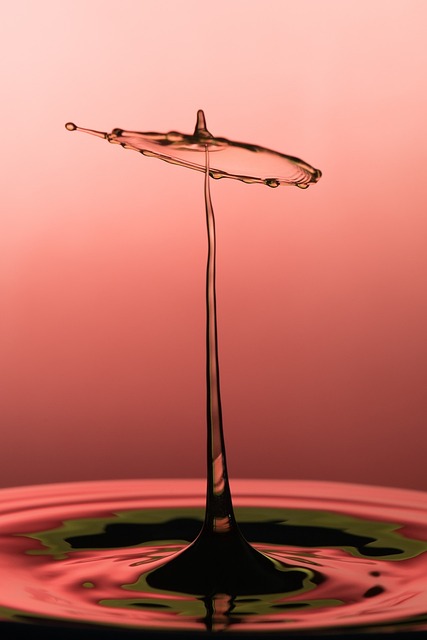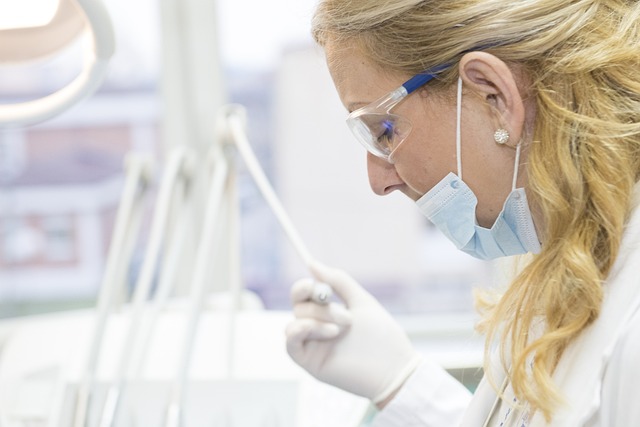Post-Tooth Extraction: Can I Enjoy Carbonated Drinks?
Hello there! If you’ve recently had a tooth extraction, you know how important it is to follow the right aftercare instructions for a smooth recovery. But what about your favorite fizzy beverages? It’s only natural to wonder whether you can still enjoy carbonated drinks without negatively affecting your healing process. Well, fret not! In this article, we’ll provide you with all the information you need to make an informed decision. We’ll explore the impact of carbonated drinks on post-tooth extraction healing and offer some friendly advice to help you enjoy your favorite bubbly treats responsibly. So sit back, relax, and let’s delve into the delightful world of carbonated beverages after tooth extraction.
1. Understanding the Healing Process: Post-Tooth Extraction Recovery
After getting a tooth extraction, it’s important to understand the healing process to ensure a smooth recovery. Here are a few key points to keep in mind:
- Bleeding: It’s normal to experience some bleeding for the first 24 hours after the procedure. To control bleeding, gently bite down on a gauze pad placed over the extraction site for about 30 minutes. If bleeding continues, use a fresh gauze pad or tea bag and repeat the process. Avoid spitting excessively or rinsing forcefully, as it can disrupt the blood clot forming in the socket.
- Pain and Swelling: Swelling and discomfort are expected following a tooth extraction. Applying an ice pack to the affected area for 10 minutes on, 10 minutes off, can help reduce swelling. Over-the-counter pain medications, such as ibuprofen, can also be taken as directed to manage pain. If prescribed any pain medication, always follow your dentist’s instructions.
- Oral Hygiene: Proper oral hygiene is vital during the recovery period. However, avoid brushing the extraction site for the first 24 hours. Instead, rinse your mouth gently with warm saltwater after meals to keep the area clean. After the first day, you can gently brush around the site, taking care not to disturb the blood clot.
- Diet: Stick to a soft or liquid diet for the first few days after extraction. Opt for foods like mashed potatoes, yogurt, smoothies, and soup. Avoid hot, spicy, and hard foods that can irritate the extraction site or get stuck in the socket, causing discomfort or infection.
Remember, every person heals differently, so don’t hesitate to reach out to your dentist if you have any concerns or experience severe pain, excessive bleeding, or prolonged swelling. By following these guidelines, you’ll be well on your way to a successful recovery!

2. Taking Care of Your Oral Health: Can You Indulge in Carbonated Drinks?
Carbonated drinks are a popular choice for many people, but when it comes to your oral health, there are a few things to consider. While it’s understandable that you may crave a fizzy beverage every now and then, it’s important to be aware of the potential effects they can have on your teeth. Here are some important points to keep in mind:
- Acidic Content: Carbonated drinks often have a high level of acidity, which can erode tooth enamel over time. This can lead to tooth sensitivity, discoloration, and even cavities. It’s crucial to limit your consumption of these drinks and rinse your mouth with water afterward to help neutralize the acidity.
- Sugar Content: Many carbonated drinks contain a significant amount of sugar, which can contribute to tooth decay. The bacteria in your mouth feed on sugars, producing acids that wear down the enamel. Opting for sugar-free alternatives or drinking through a straw can minimize direct contact with your teeth.
- Dehydration: Carbonated drinks often contain caffeine, which is a diuretic and can dehydrate your body, including your mouth. Saliva plays a crucial role in maintaining oral health by washing away food particles and neutralizing acids. Staying hydrated with water is the best way to keep your mouth moist and prevent dryness.
While carbonated drinks can be enjoyed in moderation, it’s important to prioritize your oral health. Choosing water or unsweetened beverages as your primary hydration source and practicing good oral hygiene habits, such as regular brushing, flossing, and visiting your dentist, are essential for maintaining a healthy smile for years to come.

3. The Dos and Don’ts of Drinking Carbonated Beverages after Tooth Extraction
After a tooth extraction, it’s important to take care of your oral health to facilitate a smooth and speedy recovery. When it comes to drinking carbonated beverages, there are certain dos and don’ts that you should keep in mind:
Do:
- Wait at least 24 hours after the tooth extraction before consuming any carbonated beverages.
- Choose sugar-free or low-sugar options to minimize the risk of tooth decay and irritation.
- Gently sip the carbonated drink instead of using a straw, as using a straw can create suction that may dislodge the blood clot necessary for healing.
- Rinse your mouth with water or an alcohol-free mouthwash after consuming the carbonated beverage to remove any residue or acidity.
Don’t:
- Avoid drinking carbonated beverages immediately after a tooth extraction, as the carbonation can cause discomfort and irritate the extraction site.
- Refrain from consuming highly acidic carbonated drinks like sodas, as they can erode tooth enamel, delay healing, and cause sensitivity.
- Avoid swishing the carbonated drink vigorously in your mouth, as this may dislodge the blood clot and lead to a painful condition called dry socket.
- Do not ignore any signs of pain, bleeding, or prolonged discomfort. Consult your dentist if you experience any concerns or complications.
By following these dos and don’ts, you can enjoy the occasional carbonated beverage after your tooth extraction while ensuring your oral health remains a top priority. Remember to always consult your dentist for personalized advice based on your specific dental needs.
4. The Impact of Carbonated Drinks on the Healing Socket
Carbonated drinks are a popular choice for many people, but did you know that they can have an impact on the healing socket after a dental procedure? It’s important to be aware of the potential effects so you can make informed choices for your oral health.
Here are a few ways that carbonated drinks can affect the healing socket:
- Delayed healing: The carbonation in these drinks can irritate the sensitive tissues in the socket, leading to delayed healing. It’s best to avoid carbonated beverages during the initial stages of healing to promote a faster recovery.
- Increased risk of infection: Carbonated drinks often contain high amounts of sugar, which can create a breeding ground for bacteria. Consuming these drinks can increase the risk of infection, which can further delay the healing process. Opting for water or unsweetened beverages is a better choice for your oral health.
To ensure a smooth healing process, it’s recommended to follow your dentist’s instructions and avoid carbonated drinks until the socket has fully healed. Remember, hydrating with water and making healthy beverage choices can contribute to a faster recovery and help maintain your oral well-being in the long run.

5. Sipping Smart: When Can You Safely Enjoy Carbonated Drinks after Tooth Extraction?
If you’ve recently had a tooth extraction, it’s important to take certain precautions during your recovery period. While it’s natural to crave your favorite carbonated drinks, it’s crucial to know when you can safely enjoy them without causing any harm. Here are some guidelines to keep in mind before reaching for that fizzy beverage:
Timing is key:
- Wait at least 24 hours before consuming any carbonated drinks after your tooth extraction.
- Avoid using a straw as this can dislodge the blood clot and delay your healing process.
- After the initial 24 hours, start with small sips rather than gulping down the drink all at once.
Choose the right type of drink:
- Opt for carbonated drinks that are sugar-free to minimize the risk of tooth decay and further complications.
- Avoid drinks that are extremely cold or hot as they can increase sensitivity and cause discomfort.
- If possible, dilute the carbonated drink with plain water to reduce its acidity and potential harm to your healing gums.
Remember, it’s always advisable to consult with your dentist before consuming any carbonated drinks post tooth extraction, as individual healing times may vary. Your dentist will provide personalized advice based on your specific case and help ensure a smooth recovery.

6. Tips for Enjoying Carbonated Beverages without Compromising Your Oral Health
Carbonated beverages are a fizzy delight, but they can come with some negative effects on your oral health. However, there are ways to enjoy these drinks without compromising your teeth and gums. Here are some tips to help you savor your favorite carbonated beverages while keeping your smile healthy:
1. Sip in moderation: Limit your consumption of carbonated drinks to minimize the exposure of your teeth to acidity and sugar. Instead of drinking them throughout the day, enjoy them with a meal or in one sitting to reduce the risk of tooth decay.
- 2. Use a straw: When you drink carbonated beverages through a straw, it helps reduce the amount of contact the drink has with your teeth, minimizing the potential damage to your enamel.
- 3. Rinse with water: After enjoying a carbonated drink, rinse your mouth with water. This helps to remove any remaining sugars or acids, reducing the chances of tooth decay.
- 4. Wait before brushing: While you may be tempted to brush your teeth immediately after consuming a carbonated drink, it’s best to wait for at least 30 minutes. Brushing too soon can actually spread the acids and erode the enamel further.
By following these simple tips, you can continue to enjoy carbonated beverages without compromising your oral health. Remember, moderation and good oral hygiene practices are key to maintaining a bright, healthy smile.

7. Exploring Alternatives: Temporarily Replacing Carbonated Drinks during Recovery
During the recovery process, it is often recommended to avoid carbonated drinks as they can worsen certain health conditions and hinder the healing process. But don’t worry, there are plenty of delicious alternatives available that can quench your thirst and provide a refreshing taste without the carbonation. Here are some great options to consider:
- Herbal Teas: Sip on a variety of herbal teas such as chamomile, peppermint, or ginger. These not only offer hydration but also provide numerous health benefits.
- Infused Water: Make your own infused water by adding slices of fruits like lemon, cucumber, or berries. This will give your water a burst of natural flavor.
- Fruit Juices: Opt for 100% pure fruit juices that are free from added sugars. These juices are packed with essential nutrients and can be a great substitute for carbonated beverages.
Remember, it’s important to stay hydrated, especially during recovery. So, even though carbonated drinks may be off-limits for now, you can still enjoy a wide variety of alternatives that are both tasty and beneficial for your overall well-being. Cheers to a healthy recovery!
8. Hydration and Healing: Finding the Right Beverages for Post-Tooth Extraction
After tooth extraction, it is crucial to choose the right beverages that promote hydration and aid in the healing process. Staying hydrated is important for your overall health and can help minimize discomfort and swelling in the extraction area. Here are some beverages to consider:
- Water: Stay hydrated by drinking plenty of plain water throughout the day. This is the best beverage choice as it doesn’t contain any additives or sugars that could potentially irritate the extraction site.
- Herbal tea: Sip on soothing herbal teas such as chamomile or peppermint, which can help calm inflammation and provide relief. Avoid adding sugar or caffeine to your tea, as these can hinder the healing process.
- Fruit-infused water: Add slices of your favorite fruits like lemon, cucumber, or berries to your water for a subtle hint of flavor. Not only does it make drinking water more enjoyable, but the added vitamins and antioxidants from the fruits can also support healing.
- Coconut water: Rich in electrolytes, coconut water can help replenish fluids and prevent dehydration. Opt for natural and unsweetened varieties to avoid unnecessary sugars.
Remember, it’s important to avoid carbonated, caffeinated, and alcoholic beverages as they can interfere with the healing process. Additionally, using a straw should also be avoided during the initial recovery period, as it can dislodge the blood clot and delay healing. By choosing the right beverages and staying hydrated, you can support your body’s natural healing abilities and have a smoother recovery after tooth extraction.
9. Balancing Your Cravings: How to Satisfy Your Carbonated Drink Fix Safely
Craving your favorite carbonated drinks but worried about the potential health risks? Fear not, as there are safe and healthier options to satisfy your thirst for fizz! Here are some tips to help you balance your cravings:
1. Opt for Low-Sugar Alternatives: When choosing carbonated drinks, look for options with lower sugar content. Many brands now offer light or diet versions of their popular sodas, which can significantly reduce your sugar intake.
2. Try Sparkling Water: Sparkling water is a fantastic carbonated alternative that offers the same refreshing effervescence without the added sugars or artificial flavorings. You can find a variety of flavored sparkling water options on the market today, making it easy to find one that suits your taste buds.
3. Experiment with Homemade Infusions: Make your own carbonated drinks at home by infusing sparkling water with natural flavors. Simply add slices of fresh fruit, like lemon or cucumber, or try herbs like mint or basil. This way, you can control the sweetness and enjoy a guilt-free carbonated beverage.
10. FAQs: Answering Your Burning Questions about Carbonated Drinks after Extraction
Here are some frequently asked questions about carbonated drinks after extraction:
Q: Can I drink carbonated beverages after tooth extraction?
A: It is generally recommended to avoid drinking carbonated beverages, such as soda or sparkling water, after tooth extraction. The carbonation in these drinks can cause discomfort and may interfere with the healing process. It is best to stick to non-carbonated drinks, like water or herbal tea, during your recovery period.
Q: How long should I wait before drinking carbonated drinks after extraction?
A: It is important to wait for a few days before consuming carbonated drinks after tooth extraction. This allows the extraction site to heal properly and reduces the risk of complications. Your dentist will provide specific instructions based on your individual case, so it is important to follow their recommendations for a smooth and speedy recovery.
Frequently Asked Questions
Q: Can I enjoy carbonated drinks after a tooth extraction?
A: Absolutely! While it’s important to pay attention to your diet following a tooth extraction, you can still indulge in carbonated beverages.
Q: Is there any special consideration I should keep in mind?
A: Yes, there are a few things to consider when enjoying carbonated drinks after a tooth extraction. Firstly, it’s best to wait at least 24 to 48 hours after the procedure before consuming any carbonated beverages.
Q: Are there any risks associated with drinking carbonated drinks after a tooth extraction?
A: Drinking carbonated beverages following a tooth extraction does carry a minimal risk. The main concern lies in the bubbling action and potential pressure buildup in the mouth, which could dislodge the blood clot forming at the extraction site. Keeping that in mind, it’s important to be cautious.
Q: How can I safely enjoy carbonated drinks after a tooth extraction?
A: To minimize the risks, it is suggested to slowly sip the carbonated drink through a straw placed at the back of your mouth, avoiding direct contact with the extraction site. This helps to reduce the chance of disturbing the blood clot and ensures a safer experience.
Q: Are there any other alternatives I can consider?
A: If you’re concerned about the potential risks, an alternative could be to opt for carbonated water or sparkling water without added sugars or acidic flavors. These alternatives can fulfill your craving for a fizzy drink without posing any harm.
Q: Can I resume regular consumption of carbonated drinks after the initial recovery period?
A: After the first few days of recovery, when the extraction site has healed and the blood clot has formed properly, you can gradually resume your regular consumption of carbonated drinks.
Q: What are some other important post-tooth extraction tips?
A: Alongside enjoying carbonated drinks responsibly, make sure to follow all the post-operative instructions provided by your dentist. These typically include avoiding hard or crunchy foods, maintaining proper oral hygiene, and attending follow-up appointments as scheduled.
Q: How can I ensure a speedy recovery after a tooth extraction?
A: To promote a faster recovery, it’s crucial to follow a soft-food diet for the initial days post-extraction, maintain good oral hygiene by gently rinsing your mouth with warm saltwater, and avoid smoking or using a straw until you are fully healed.
Q: Can I consult my dentist regarding my specific concerns related to carbonated drinks?
A: Absolutely! It’s always a good idea to consult your dentist if you have any concerns or specific questions related to consuming carbonated drinks after a tooth extraction. They will be able to provide tailored advice based on your individual situation.
Remember, while enjoying carbonated drinks can still be a part of your diet after a tooth extraction, moderation and caution are key to ensure a smooth recovery.
Conclusion
In conclusion, dear readers, we hope this article has shed light on the topic of post-tooth extraction and the consumption of carbonated drinks. While it is understandable that you may crave your favorite fizzy beverages, it is important to exercise caution and follow the recommendations provided by your dentist. Remember, your oral health is a priority, and allowing adequate time for the healing process is essential for a speedy recovery.
During the initial days after a tooth extraction, it is best to avoid carbonated drinks altogether. The carbonation can potentially disturb the blood clot formation and lead to complications such as dry socket, delaying your healing progress. However, as you progress through the recovery period, you can gradually reintroduce these bubbly beverages back into your life, keeping a few crucial tips in mind.
First and foremost, opt for sugar-free carbonated drinks to avoid any unnecessary damage to your teeth and gums. Additionally, be mindful of the temperature of the drink; consuming cold or hot carbonated beverages too soon after your extraction can cause discomfort and sensitivity. Enjoying your drink at room temperature is often the safest option.
Lastly, remember to practice moderation. While carbonated drinks may be tempting, excessive consumption can pose oral health risks. Be sure to balance your beverage choices with an overall healthy diet, emphasizing the importance of water intake and nutrient-rich foods.
By following these guidelines and consulting your dentist, you can navigate the post-tooth extraction period and still enjoy the occasional fizzy indulgence. Remember, patience and proper care are key to a successful recovery and restoring your oral well-being.
We hope this article has answered your questions and empowered you to make informed decisions when it comes to your dental health. As always, should you have any further concerns or doubts, it is best to consult with your trusted dental professional. Here’s to a speedy recovery and the return of your sparkling smile!






